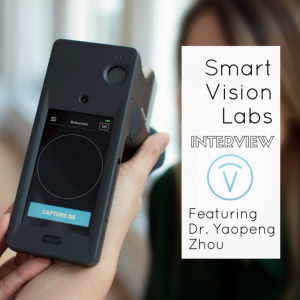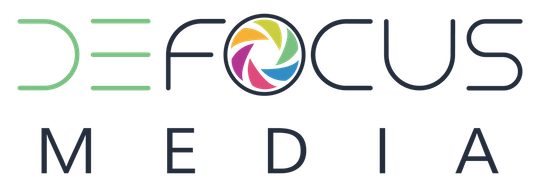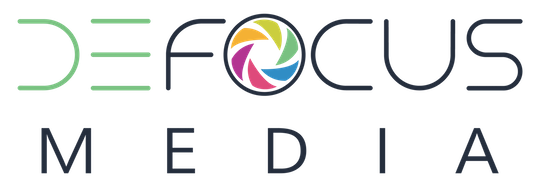Podcast: Play in new window | Download
Subscribe: Apple Podcasts | Google Podcasts | Spotify | Amazon Music | Android | RSS
Over the past year, multiple online and handheld telemedicine devices have entered the vision correction marketplace and disrupted the traditional idea of going to the doctor for a glasses prescription. As optometrists, it would be short sighted to ignore it or think that we could permanently legislate to eliminate it in when the American Medical Association has lended its lukewarm support. In sitting down to talk with creators like Dr. Yaopeng Zhou of Smart Vision Labs and Vitor Pamplona of EyeNetra, there are some common themes. These are young creatives from an  engineering background that entered the vision exam space working on high-tech retinal imaging and wavefront aberration research. Without a medical background, it’s easy for them to separate vision correction from ocular healthcare mentally because they’ve never been tasked with performing both. Before entering the marketplace, they did extensive research to see if there was room for telemedicine in eyecare. The feedback they received was telling about the state of eyecare in America. It seems overwhelmingly in their surveys, patients said they’d prefer NOT going to the doctor, that their visits were inconvenient, the technology used to get their prescription seemed outdated, and they placed little value on the health check portion of their examination (such as dilation). Wonder why this disruptive refractive technology now exists? We have to look in the mirror.
engineering background that entered the vision exam space working on high-tech retinal imaging and wavefront aberration research. Without a medical background, it’s easy for them to separate vision correction from ocular healthcare mentally because they’ve never been tasked with performing both. Before entering the marketplace, they did extensive research to see if there was room for telemedicine in eyecare. The feedback they received was telling about the state of eyecare in America. It seems overwhelmingly in their surveys, patients said they’d prefer NOT going to the doctor, that their visits were inconvenient, the technology used to get their prescription seemed outdated, and they placed little value on the health check portion of their examination (such as dilation). Wonder why this disruptive refractive technology now exists? We have to look in the mirror.
 What we should find encouraging is that founders like Zhou of Smart Vision Labs are willing to have a dialogue with optometry and find a place for common ground. While their marketing is at first glance offensive to an optometrist’s sensibilities (“Why would you want to pay more to use old technology when you can get the latest, proven cutting edge tests at a fraction of the price?” touts their website), they are just parroting back what their market research said patients want to hear. With the input and outcries from the eyecare community, Zhou has been careful to emphasize his prescriptive technology is not a health check, and is not recommended for anyone with known eye disease or that hasn’t had a dilated eye exam within the past 2 years. But when asked how he enforces this policy, his answer is very telling. His device is just a device; it’s their company policy to not dictate how the doctor who signs off on prescriptions practices and the doctor is the one that will chose when and if to write the prescription. Who’s liable for any eyecare issues arising from the prescription? Again, the doctor is the one prescribing – the device is just a telemedicine tool. Ophthalmology, optometry, opticians – the mirror (and the risk) is back on us!
What we should find encouraging is that founders like Zhou of Smart Vision Labs are willing to have a dialogue with optometry and find a place for common ground. While their marketing is at first glance offensive to an optometrist’s sensibilities (“Why would you want to pay more to use old technology when you can get the latest, proven cutting edge tests at a fraction of the price?” touts their website), they are just parroting back what their market research said patients want to hear. With the input and outcries from the eyecare community, Zhou has been careful to emphasize his prescriptive technology is not a health check, and is not recommended for anyone with known eye disease or that hasn’t had a dilated eye exam within the past 2 years. But when asked how he enforces this policy, his answer is very telling. His device is just a device; it’s their company policy to not dictate how the doctor who signs off on prescriptions practices and the doctor is the one that will chose when and if to write the prescription. Who’s liable for any eyecare issues arising from the prescription? Again, the doctor is the one prescribing – the device is just a telemedicine tool. Ophthalmology, optometry, opticians – the mirror (and the risk) is back on us!
We’re at a very important crossroads in optometry where we can still potentially shape the telemedicine space that is rising up outside of our domain at the moment. What we do know about disruptive technology raises some interesting insight on how we could chose to face it, embrace it, and change it.
- Surveys of eyecare patients have repeatedly shown that patients want something alternative to our current care models
- The marketing departments at disruptive companies know what they are doing, and they will be able to successfully influence the public to see eyecare differently (see Warby Parker if you don’t believe me)
- Disruptive technology does not replace a doctor; it can’t exist without a licensed eyecare provider writing the prescription for a patient
- Corporate entities and insurances are already sitting down with these companies. The decisions about utilizing these devices in what currently exists as optometry spaces are being made right now, without us. Zhou cannot name drop, but I think we all can accurately predict online retailers like Warby and Essilor/Luxotica who owns Glasses.Com would have an interest in considering partnering with these companies like 1-800 Contacts has done with Opternative.
- Estimates by Zhou predict 1 telemedicine doctor could write 10 x more prescriptions than what a doctor could see in a traditional healthcare model. What does that mean for the larger than ever number of new grads entering the marketplace?

So how can we make a difference in the decisions being made about American eyecare? It’s time for us to reach out to disruptive refractive companies about utilizing their technology in a more integrated way – not separate from medical care but as a part of comprehensive eyecare. It’s time to reach out strongly to ophthalmology about our desires to work closely with them about ensuring comprehensive ocular health care in the next frontier of telemedicine, and collaborate on a policy for ocular care guidelines. What we can’t do is ignore the conversation as it’s happening without us.


